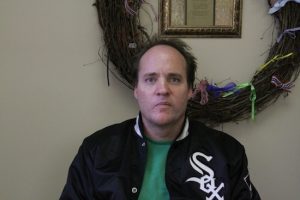Motor and Speech Issues After TBI
Kevin’s Motor and Speech Issues After TBI Create Challenges
Kevin Part Five

Kevin deals with motor and speech issues after TBI. He has to relearn how to walk and work on pronunciation in speech therapy.
We now turn to the physical manifestations Kevin dealt with in his recovery, which included motor and speech issues after TBI. First was the challenge of relearning to walk. The motor and speech issues after TBI stem from at least two sources. First, the muscle atrophy from disuse when in a coma. Second, there is often damage to the parts of the brain that control motor function (muscles) and coordination. This is almost presumptively going to include the balance centers of the brain.
Kevin had problems with his balance and walking steady. The problems continued, and he even received therapy for it his rehab stay at Mercy Hospital. His therapy included walking between two parallel bars to retrain his balance centers. The doctors have diagnosed with permanent balance problems and that medication couldn’t eliminate.
I didn’t want to use a walker. And I didn’t want nothing to do with those. I always thought positive.
Despite this prognosis, Kevin refuse to rely on assistive devices to be able to walk. He limited his use of a wheelchair, cane, or walker to regain as much independence as possible. After two months of hard work, he was able to start walking without a walker. By the time he left his second rehab stay, at Lakeview, he was walking without the help of a walker.
Unlike so many survivors of TBI, Kevin does not report significant problems with headaches.
Speech Related Challenges
One of his most noticeable areas of deficit from his severe brain injury is speech. As seen on the video, his answers were delivered in a halting voice. He was always responsive and logical, but had problems with delivery.
“Like sometimes I would stutter, like sometimes I can’t get a word out or something like that,” he said. He told of being at a restaurant the day before our interview and not being able to order something on the menu because he couldn’t say the word. He was looking at the word and unable to say it. He understood the word, but just couldn’t say it. This seems to be an atypical anomia. Anomia’s are usually the inability to find the specific noun (the name) of something, even though the person can describe what it is the object. This has elements of that but may be more of a reading deficit.
This was frustrating for him, but he managed to control his temper. When asked if he was nervous during our interview, he said that he was feeling pretty calm. He had gotten used to the interview in the first half hour. He emphasized that he likes to maintain a positive attitude and has maintained his sense of humor, which we found to be true throughout our interview of him. See our next post about Kevin’s cognitive ability when it comes to sports.